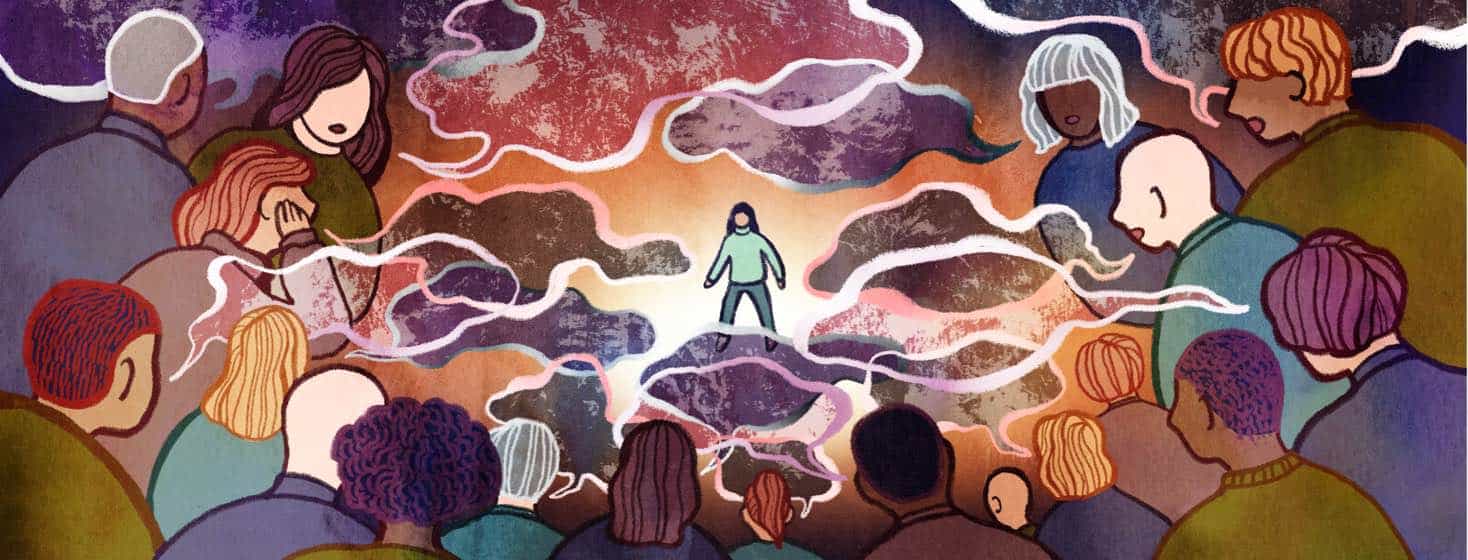Who Should be Included in Your Treatment Decisions?
Your support team has a variety of people. We probably all know the incredible value of surrounding ourselves with supportive people during a serious illness. Our family, friends, and the medical team are usually part of this group. They are included for a variety of reasons and purposes. Some for their medical expertise, some as caregivers, and others just to be there for a hug and kind word.
But when it comes to making decisions about your treatments, who should be involved?
My supporters were on board with my decisions
I was fortunate to have a stellar medical team who diagnosed my cancer fairly soon after I met with them.
I was originally diagnosed with T1 high-grade and given the option of BCG or radical cystectomy. Due to my urethra being 90 percent removed after cancer cells were found, I was incontinent. While I could have tried BCG, for a variety of reasons I chose not to.
As things moved fairly quickly, only my family knew the exact procedures I was having done. They were very supportive before, during, and after. For that, I am forever thankful.
My oncologist asked me to help others
Fast forward a year and I had been asked by my oncologist to help others deal with this diagnosis/procedure on a personal level if they chose to do so. While I was certainly happy to help others and openly discuss the details of my treatments, surgery, and recovery, I was surprised at the hard and fast opinions from the friends and families of some patients.
Endless opinions
Meeting someone in person was something I did when possible. I felt it actually showed them that I was upright and doing well post-surgery. What I was not prepared for were spouses, children, other family members, and friends almost ganging up on the patient to try to "win" over their choice of treatment or testing.
Alex's story
I met a couple at a local restaurant in 2016. As always I brought along a bag of my supplies to show the man, we'll call him "Alex." He was leaning towards RC/IC and I wanted to show him actual products I used but to make it clear that the decision was his alone. It did not matter to me which diversion he chose.
Handling differing opinions and lots of emotions
Along with Alex were seven - yep 7 - other people all with differing opinions as to how he should move forward. One wanted him to wait it out and see how his high-grade diagnosis "played out."
Another wanted Alex to see her doctor for another opinion. One wanted him to eat more veggies and probiotics because it would make the cancer go away. Another was going to research other options and get back to him.
His wife just sat and cried. Alex was clearly overwhelmed and hardly spoke. After a very short while of listening to all of the opinions and arguments - I called for a time out and asked if I could speak to Alex alone. Alex and I went for a walk outside versus having 7 other people leave the restaurant.
Dealing with opinions
Alex was extremely emotional when he told me how difficult it had been to not only be diagnosed with cancer out of the blue but to deal with all of the widely varying opinions, many of which he did not agree with. He felt like he was letting the people who cared about him the most down. I explained that clearly they all meant well and wanted the best for him. I reminded him that in the long run, the decision he made would impact the rest of his life. I suggested that he speak with his wife and help her to understand that he needed her to be "on board" with what treatments he had.
All's well that ends well
I also encouraged Alex to get a second opinion - which he did. The outcome was the same and he chose to move forward with RC/IC with his wife's full support. Today he is doing very well. They did not tell the other family and friends until the surgery was over.
I went to visit Alex and his wife a few weeks after his surgery. It was an emotional time for them but they both thanked me for intervening and helping them decide how to move forward. That made me realize how different my situation would have been if my family and friends did not actually support my decision.
If everyone does not agree, how did you move forward?
Having support is essential during cancer treatments but in the end, should the decisions be only between the doctors and patient? I think so but others may not agree. Who was/is involved in your medical decisions? Do others accept and support your decisions or try to change your mind? I would love to hear from others how they have navigated through the treatment options. Tell us about your experience in the comments below, or share your story with the community.

Join the conversation